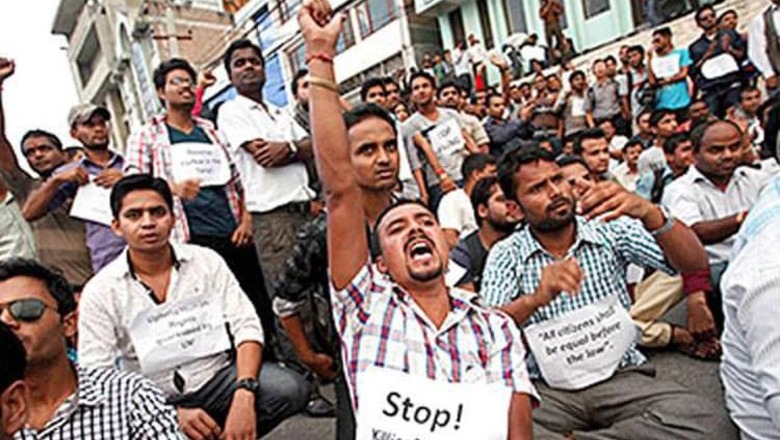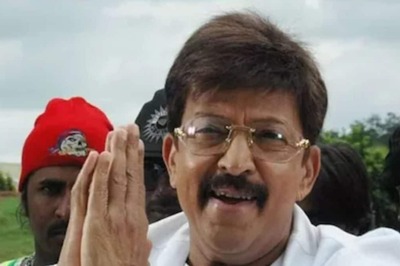
views
Geneva: Amid political turmoil in Nepal, India on Wednesday called on its neighbour to consolidate Constitution building by accommodating "all sections" and emphasised that problems facing it cannot be resolved through force.
In its statement at the second Universal Periodic Review of Nepal, India also urged the Himalayan nation to investigate and take credible measures to prevent recurrence of "incidents of violence, extra-judicial killings and ethnic discrimination in the country".
"We note the concerns expressed by UN human rights bodies, UN Country Team and Nepal's own Human Rights Commission over continuing incidents of violence, extra-judicial killings and ethnic discrimination in the country," India said.
"We urge the Government of Nepal to investigate and take credible measures to prevent their recurrence. Problems facing Nepal are political in nature and cannot be resolved through force or a security-based approach," India said in its statement at the Interactive Dialogue at 23rd Session of the Universal Periodic Review (UPR) Working Group.
It stated that as a close and friendly neighbour, it has consistently appealed to Nepal to address all challenges in a spirit of dialogue and reconciliation. Making recommendations to the Nepalese government, India said it should, "consolidate the Constitution building and democratisation process by accommodating all sections of Nepal to enable broad-based ownership and participation."
It called on Nepal to ensure effective functioning of Truth and Reconciliation Commission and full implementation of its recommendations, including prosecution of those responsible for violent insurgency.
India also recommended that Nepal should ensure the independence and financial autonomy of the National Human Rights Commission and called for setting up an independent commission for children and women. In the statement, India also made it clear that the obstruction in the supply of essential goods to Nepal was from the Nepalese side caused by Nepalese protesters.
India's statement assumes significance due to the ongoing protests in Nepal by the Madhesis over the Constitution and the strain in bilateral ties after the killing of an Indian in police firing.
Madhesis, Indian-origin inhabitants of Nepal's Terai region, are protesting division of their ancestral homeland in the new Constitution and their agitation has closed the main trading point near Raxaul, halting supply of essential goods from India, causing an acute shortage of fuel in Nepal.
The Nepalese delegation was led by Deputy Prime Minister and Minister of Foreign Affairs Kamal Thapa. "The people of Nepal, having endured a devastating earthquake in April 2015, are facing another tough challenge during the ongoing political transition. Violence and instability in parts of Nepal has worsened in the run-up to and after the adoption of Nepal's Constitution in September 2015," India said.
"Over 45 persons died, mostly civilians, and hundreds injured. Firings, which had ceased just after the adoption of the Constitution, have reoccurred. We are concerned over the lack of political progress," it said. India said it has deep rooted historic and cultural ties with Nepal and it will continue to extend all assistance to it for peace, stability and socio-economic development of the country.

















Comments
0 comment